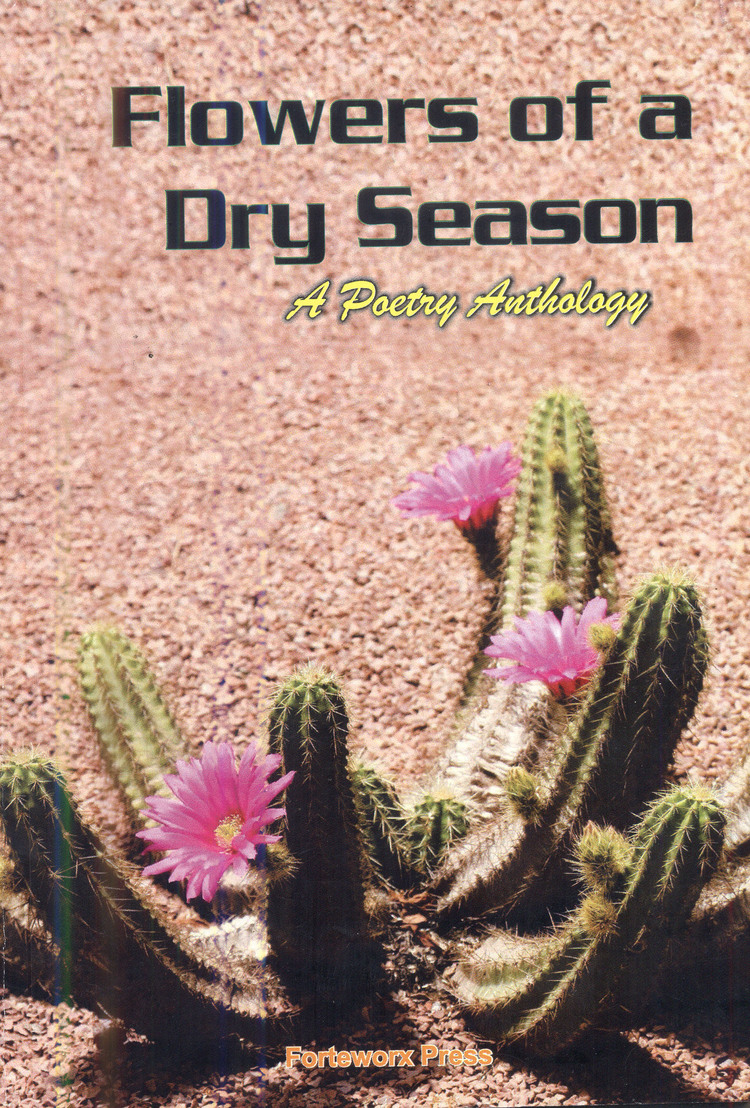
The Sunday Mail

HAVING reviewed a poetry anthology by upcoming writers last week, I decided to dig around for other works by poets who are still finding their feet in the world of the arts.
As it turns out, the pool of talent is vast with most of the writers showing a lot of promise.
Despite having talented young individuals who might be interested in putting their work out there, I have realised that the major challenge is publishing, with all the costs and requirements that come with it. It is, however, easier if the writers come together and channel their efforts towards one project, a scenario that gave life to the poetry anthology “Flowers of a Dry Season”.
With a total of 14 writers bringing their different styles to the table, this book brings with it a refreshing wind in these challenging times we are living in. These new voices radiate positive energy, creatively tacking issues affecting society in this day and age.
Most of the poems in this book challenges individuals to overlook hardships that many individuals come across on a daily basis. With all the challenges that have been rocking the literary scene lately, Edmond Shonhiwa tries to inflame other writers into action in the poem “Flowers of a Dry Season”.
He says that the gift of writing must not die and end up in a graveyard but should rather be used to build a library.
Although economic challenges might hinder the industry, Shonhiwa tried to encourage writers to stand firm and weather the storm.
“Be a rock, an oasis of this generation, springs in this arid era, let your pen and paper save us,” goes one of the verses which urges scribes to be persistent since as they play a significant role in societal development.
Owen Kambanje cleverly made use of rhyme in “Carried Away”, a poem in which the writer talks about having met his partner in a bar, a union that results in him getting broke.
The style is mesmerising in a way, with the author’s wordplay exuding creative prowess.
Kambanje also wrote another brilliant poem, “Beautiful Ivy”, in which he effectively manipulated rhyme. In this love poem, the writer displays his affection for the love of his life, letting it be known that those who intend to break them up will not succeed.
In one of the verses he wrote: “Let those of peculiar tendencies, sooth in their jealousy and shout the loudest, and come up with all sorts of wicked fancies, breaking us apart shall prove the hardest.”
African tradition and culture has been a victim of globalisation and some of the poems in this book illuminated the different western tendencies that are invading the motherland.
In “I am African”, Tendai Noreen Sadziwa displayed her pride in being an African woman. In this day and age in which many individuals are altering their physical appearances in a bid to match foreign trends, Sadziwa took a swipe at such.
“I am proud of my black African kinky hair, my eyebrows thick but perfect, I would not trade them with a pencil. I am a brown-skinned African girl, not a ‘black-today-coloured-tomorrow’ girl.”
With 78 poems of varying themes, this book is worth reading as it contains significant societal indicators. Other writers who contributed to this piece of work include Tinashe Chimuriwo, Audrey Lindani Mutinhiri, Brian Tafadzwa Penny, Leonard Mutsa Makuya, Jubilant Ncube, Gloria Murindi Dangah, C. J Milton, Yeukai Mapingure and Patrick Mahlasera.
However, although most of the writers in this publication show a lot of potential, there is a great need for improvement, particularly in style.
“Be a rock, an oasis of this generation, springs in this arid era, let your pen and paper save us,” goes one of the verses which urges scribes to be persistent since as they play a significant role in societal development.



